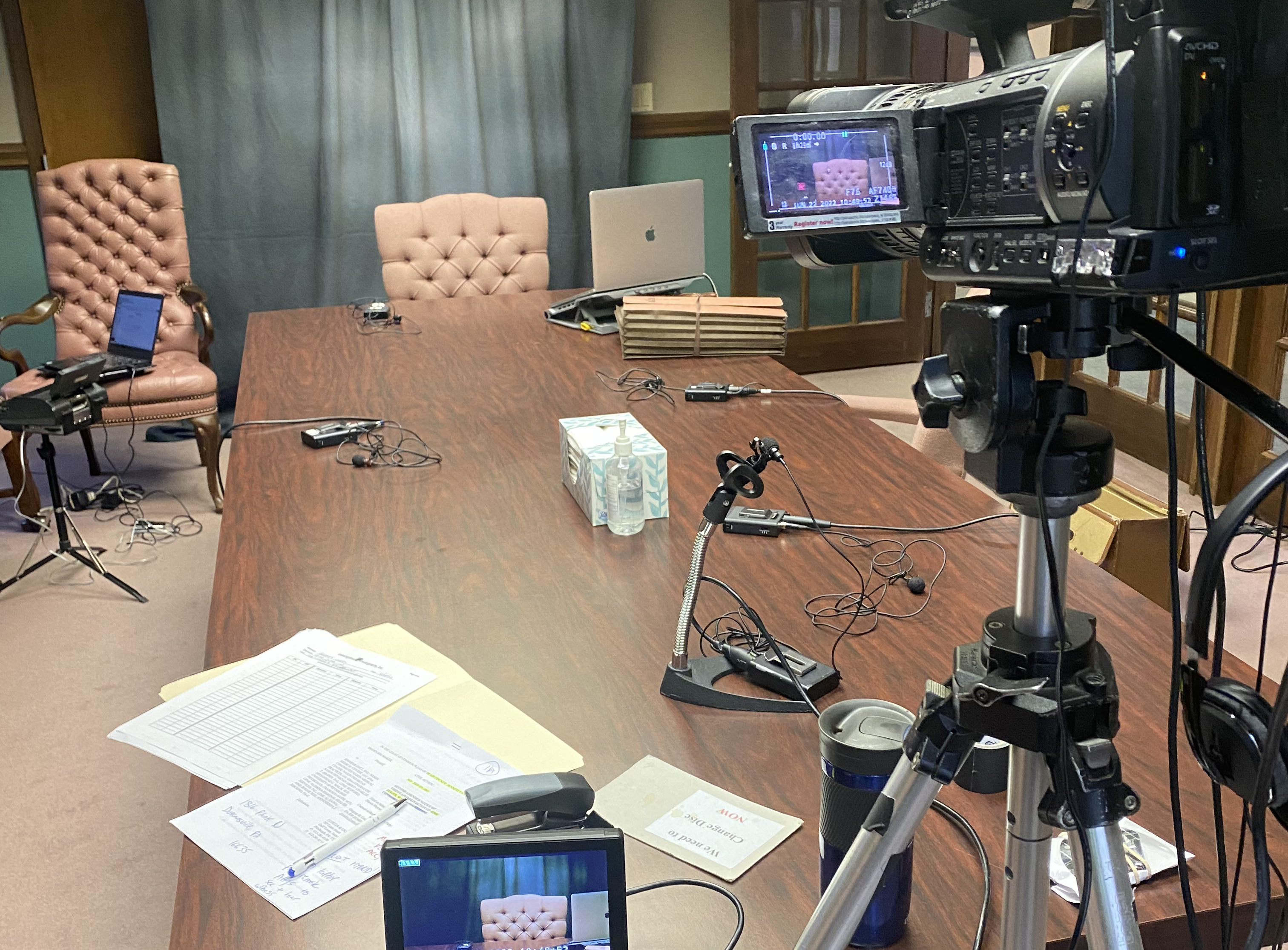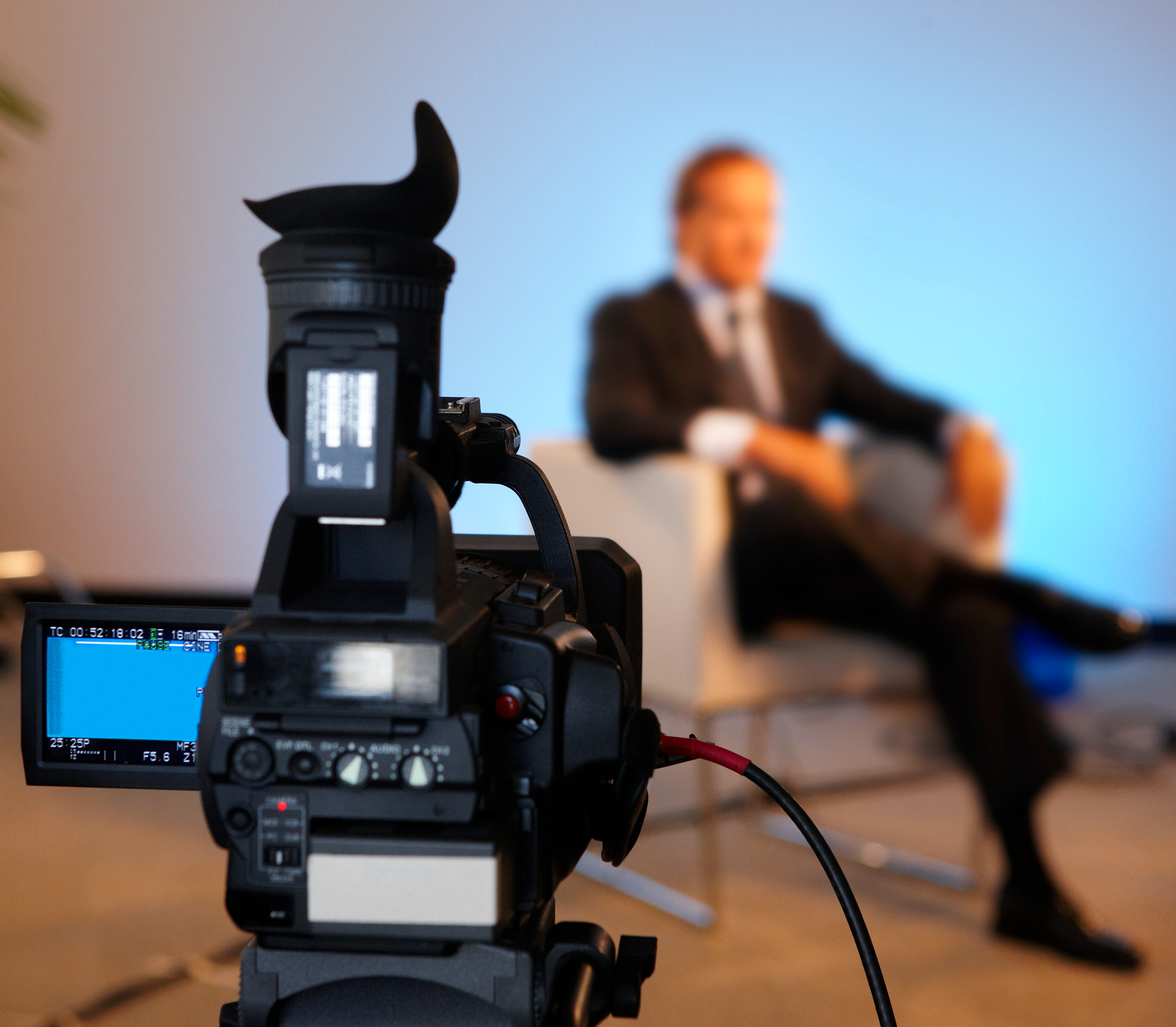The Significance of Legal Video Clip Depositions in Modern Legal Services: What You Ought to Know
Legal video depositions have actually ended up being necessary in today's lawful landscape. They provide a multidimensional sight of witness statements that conventional transcripts merely can not match. By recording both verbal and non-verbal communication, these depositions enhance the general understanding of a witness's reputation. However, the effectiveness of video depositions depends upon various aspects, including compliance with legal standards and best practices (legal video depositions). Checking out these aspects reveals their true relevance in modern lawful services
What Are Lawful Video Depositions?
Legal video clip depositions act as a vital tool in the lawsuits procedure. They entail videotaping witness testimonies in a video clip style, recording both verbal and non-verbal interaction. This approach permits lawyers to document the demeanor, expressions, and reactions of witnesses, providing a richer context for the testament. Normally performed in a regulated setting, these depositions are led by lawyers who ask questions while a stenotype reporter documents the dialogue. The resulting video clip can be essential for trial prep work, as it enables attorneys to assess the credibility of witnesses and refine their approaches. In addition, legal video depositions can be utilized in numerous lawful contexts, varying from civil disagreements to criminal instances. The aesthetic and acoustic components of video depositions enhance the discussion of evidence, making it a crucial part in the contemporary lawful landscape. Generally, they contribute substantially to the efficiency and efficiency of lawful proceedings.

Advantages of Video Depositions Over Typical Approaches
Video depositions supply many benefits contrasted to typical techniques of taking witness statements. One significant advantage is the capacity to capture both visual and audio elements, giving a more thorough record of the witness's statements. This double format boosts clearness and allows attorneys to reference specific nuances throughout test preparation. In addition, video clip depositions facilitate remote engagement, making it much easier for witnesses that might be unavailable for in-person appearances because of geographical restrictions or health issues.Moreover, video depositions can accelerate the total deposition process, reducing the moment and expenses related to traveling and logistics. They additionally boost accessibility, as tape-recorded depositions can be conveniently shared amongst lawful teams and referenced at any time. This benefit contributes to far better case management and preparation. Generally, video clip depositions represent a contemporary, reliable technique to gathering witness testaments, straightening with the developing demands of the lawful career.
The Duty of Body Movement and Tone in Testimonies

In lawful video clip depositions, body movement and tone play vital functions in sharing a witness's reliability and reliability. Nonverbal cues can give understandings into a witness's emotional state, affecting just how their testament is viewed. Understanding the impact of these elements is crucial for lawyers and jurors alike when examining the integrity of a statement.
Nonverbal Interaction Insights
While spoken interaction is commonly emphasized in legal statements, nonverbal hints such as body movement and tone play an important function in sharing reliability and feeling. Observers of depositions may note that a witness's stance, motions, and face expressions can greatly influence understandings of dependability. Consistent eye get in touch with may indicate confidence, while preventing gaze might suggest dishonesty or discomfort. The tone of voice-- its pitch, speed, and volume-- can give feelings of sincerity or unpredictability. Attorneys should be attuned to these nonverbal signals, as they often give critical context that complements spoken words. Comprehending these subtleties can improve the performance of depositions and influence the result of legal process.
Psychological Tone Impact
The psychological tone communicated throughout legal testimonies substantially impacts how a witness is regarded. Body language, vocal inflections, and face expressions play essential functions in shaping the narrative of a testimony. A witness displaying confidence with consistent eye contact and a tranquil tone can impart a sense of reliability and interaction. Alternatively, indications of stress and anxiety, such as fidgeting or a shaky voice, might bring about suspicion concerning their account. The nuances of psychological expression can affect the analysis of facts, making it vital for legal experts to identify these cues. In video depositions, the aesthetic and acoustic elements incorporate, emphasizing the value of psychological tone in communicating genuineness and reliability within the legal process.
Reputation and Trustworthiness
An essential factor in establishing integrity and credibility throughout testaments depends on the witness's body language and intonation. Viewers usually depend on non-verbal cues-- such as eye contact, pose, and motions-- to examine a witness's sincerity. A witness that keeps eye call and presents open body language might be perceived as even more dependable and straightforward than one that prevents eye contact or appears closed off. In addition, tone of voice plays a crucial function; a consistent, calm tone can enhance the reputation of the testimony, while variations in pitch or quantity might raise doubts. Eventually, the combination of body language and vocal tone greatly affects how a witness's statements are gotten and translated in a legal context.
Finest Practices for Carrying Out Video Clip Depositions
Conducting video clip websites depositions requires careful preparation Learn More and implementation to assure a reliable and clear presentation of testimony. First, it is necessary to select a silent, well-lit location to reduce interruptions and safe optimal video quality. The devices ought to be examined in breakthrough, including video cameras, microphones, and illumination, to prevent technological problems during the deposition.Next, celebrations entailed have to review the layout and procedures beforehand, seeing to it that everyone recognizes their functions. The deponent ought to be oriented on the process, including exactly how to respond plainly and concisely.Additionally, maintaining a professional attitude throughout the session is necessary. This consists of abstaining from speaking over one an additional and validating that all concerns are directed suitably. Lastly, it is important to videotape the deposition in a format that permits for very easy playback and review, preserving the integrity of the testament for future usage.
Lawful Considerations and Compliance Issues
How do legal considerations and compliance problems affect the efficiency of video depositions? Legal specialists should navigate an intricate landscape of guidelines, making certain that video depositions stick to jurisdictional policies and criteria. Conformity with legislations concerning privacy, authorization, and tape-recording methods is important. Acquiring specific approval from all events included is necessary to stay clear of legal repercussions.Additionally, the admissibility of video proof in court can pivot on compliance with procedural demands. Ensuring that the tools utilized satisfies technical requirements is also important, as low quality can weaken the deposition's reliability.Moreover, attorneys have to recognize any kind of details state laws that govern video depositions, as these can vary substantially. Failure to deal with these considerations can not only jeopardize the honesty of the deposition but likewise affect the general situation strategy, inevitably affecting the client's legal results.
How Video Depositions Effect Jury Assumption
While video clip depositions can work as effective tools in lawful procedures, their impact on jury understanding is substantial. The acoustic and aesthetic elements of video clip recordings provide jurors with a much more comprehensive understanding of witness behavior, reputation, and emotional reactions. This multimedia approach can improve the jurors' capability to analyze the integrity of testimony contrasted to traditional text-based transcripts.Moreover, video depositions allow jurors to observe body language, tone of voice, and facial expressions, every one of which can affect their interpretation of the witness's statements. The visibility of a witness on screen can humanize them, fostering compassion and link, which might sway jurors' reference opinions. Alternatively, a witness that shows up incredibly elusive or unreliable on video may bring about negative understandings that affect a jury's decision. Inevitably, the vibrant nature of video depositions plays a crucial role fit how jurors interpret proof and reach their judgments.
The Future of Video Clip Depositions in Legal Practice
As advancements in modern technology remain to reshape the legal landscape, the future of video clip depositions is positioned for considerable advancement. Advancements such as expert system, online truth, and enhanced video clip conferencing devices are expected to enhance the deposition procedure and enhance ease of access. Attorneys might make use of AI-driven analytics to examine witness credibility and case stamina more effectively.Moreover, the assimilation of virtual reality can enable courts to experience immersive simulations of depositions, providing deeper context and understanding. In addition, the fad towards remote depositions is likely to linger, using greater flexibility for clients and attorneys alike.As remote work comes to be significantly normalized, video depositions will likely become typical technique, minimizing costs and time restrictions related to standard techniques. In general, these technical developments promise to enhance the performance, effectiveness, and access of video clip depositions in legal method, eventually transforming exactly how attorneys prepare for test.
Regularly Asked Questions
Just How Much Do Legal Video Clip Depositions Usually Price?

Can Video Depositions Be Used in Any Type Of Kind Of Situation?
Video clip depositions can be used in numerous sorts of situations, including civil, criminal, and family regulation. Their versatility permits lawyers to present witness testaments efficiently, adapting to the particular needs of various lawful situations.
What Tools Is Needed for a Video Deposition?
To conduct a video deposition, vital devices consists of a high-grade camera, microphone, illumination, and a dependable recording tool. Furthermore, a computer system with modifying software application might be necessary for post-production and formatting the final video clip.
For how long Does a Regular Video Clip Deposition Last?
A common video deposition lasts in between two to four hours, relying on the intricacy of the situation and the variety of concerns positioned. Prolonged sessions might happen, yet breaks are generally integrated for participant convenience.

Are Video Depositions Admissible in Court?
Video clip depositions are normally admissible in court, provided they stick to lawful requirements and regulations of evidence. Their usage boosts clarity and preserves witness testimony, assisting in the judicial procedure during hearings and tests. Lawful video clip depositions have ended up being vital in today's lawful landscape. Additionally, legal video depositions can be made use of in different lawful contexts, ranging from civil conflicts to criminal cases. In addition, video depositions assist in remote involvement, making it much easier for witnesses that might be inaccessible for in-person appearances due to geographical constraints or health issues.Moreover, video depositions can quicken the overall deposition process, decreasing the time and expenses connected with travel and logistics. Ensuring that the equipment used fulfills technological requirements is also important, as bad top quality can threaten the deposition's reliability.Moreover, lawyers should be aware of any type of particular state regulations that regulate video depositions, as these can vary considerably. In addition, the fad toward remote depositions is likely to continue, providing better adaptability for customers and lawyers alike.As remote job ends up being increasingly stabilized, video clip depositions will likely come to be basic method, decreasing expenses and time restraints associated with conventional methods.